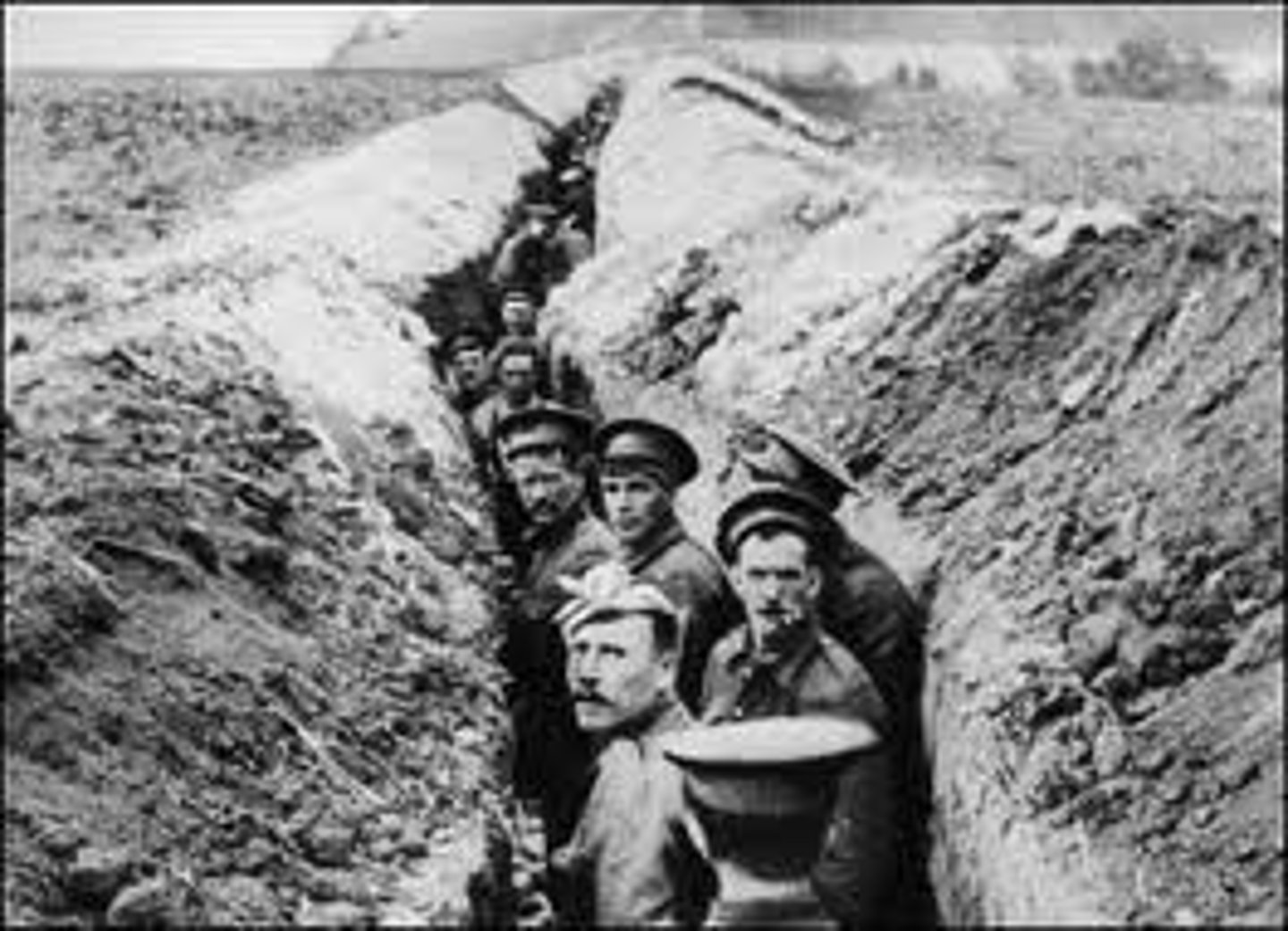World War 1
1/31
There's no tags or description
Looks like no tags are added yet.
Name | Mastery | Learn | Test | Matching | Spaced |
|---|
No study sessions yet.
32 Terms
Archduke Franz Ferdinand
This was the spark that started World War I. Archduke Ferdinand, the Austrian crown prince, was murdered on June 28, 1914, by a Serbian nationalist while visiting Sarajevo, Bosnia. All of this due to Serbia wanting to expand
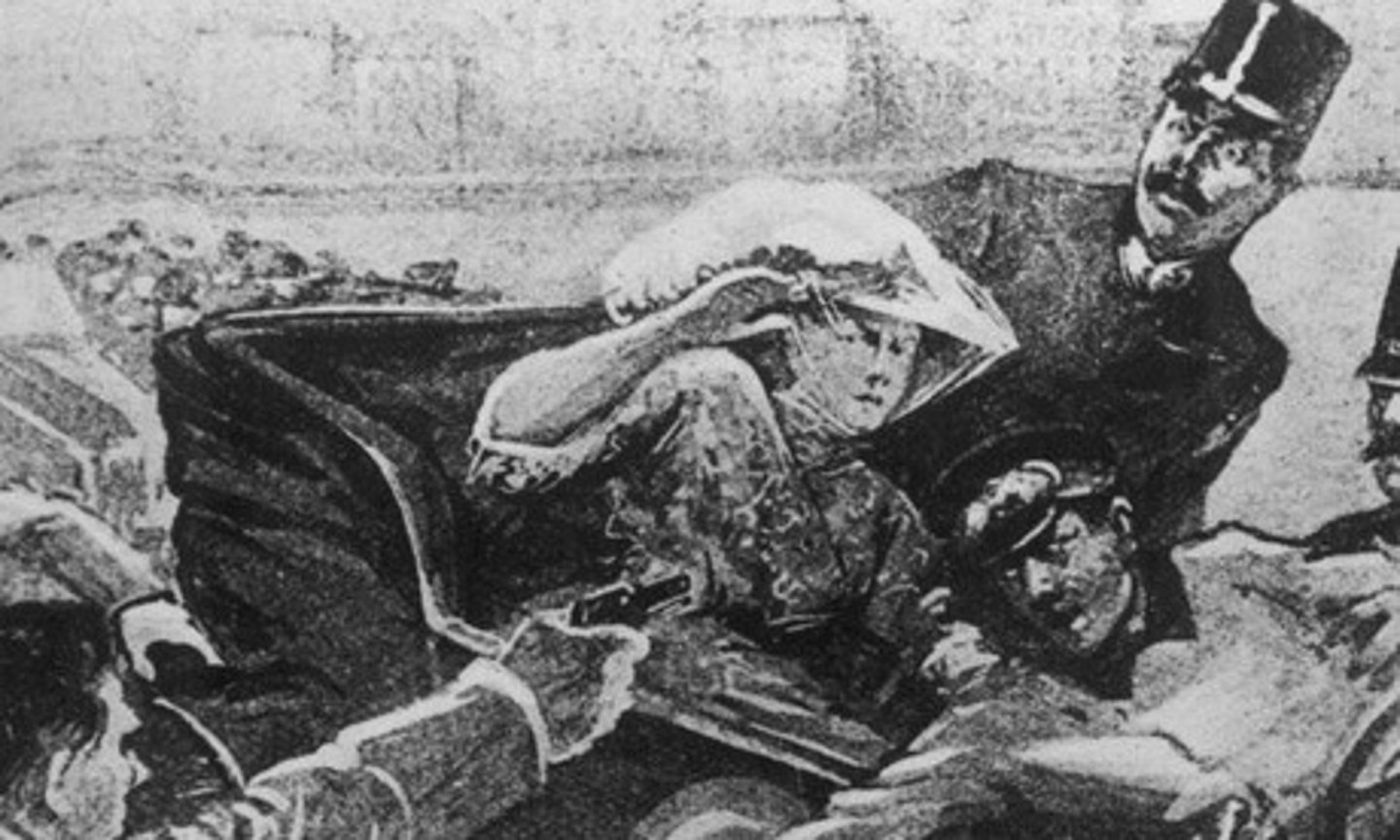
Woodrow Wilson
This was the president who was elected in 1912, and led the US into WWI. Later wrote a plan for post-WWI peace known as the Fourteen Points.
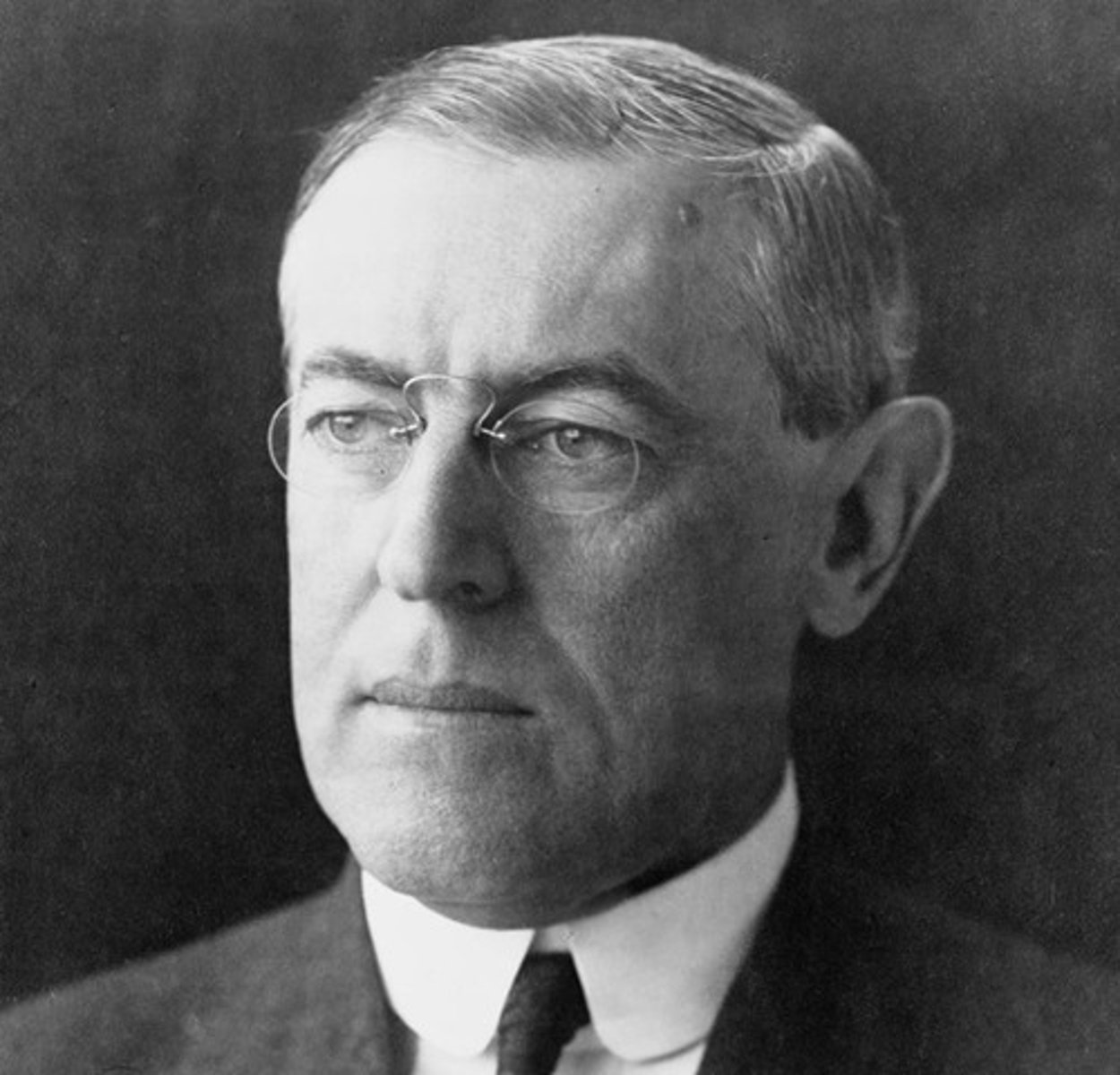
U-boats
This new machinery used by the Germans in sea warfare, to attack British and American supply ships in the North Sea and the Atlantic Ocean.
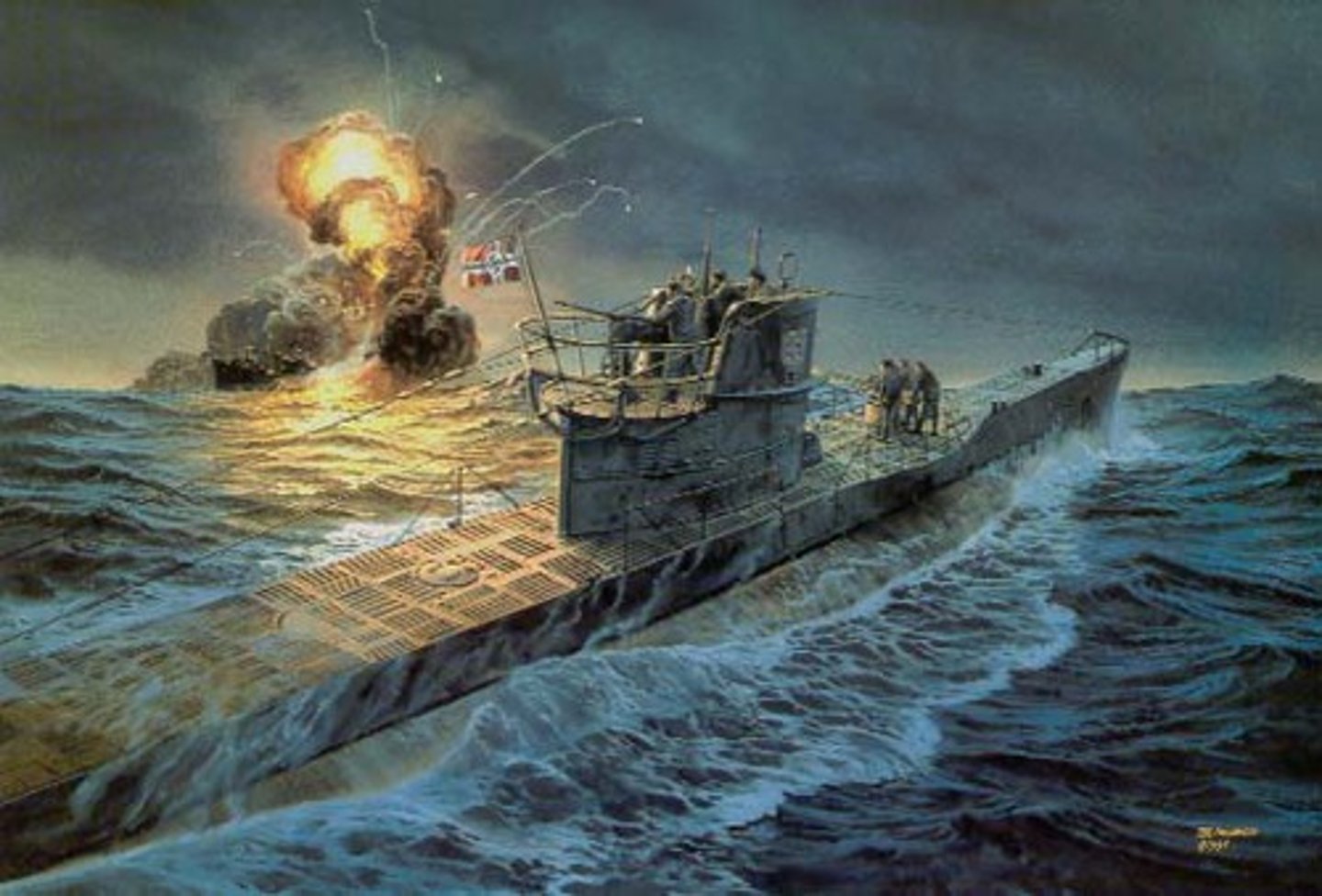
Nationalism
This cause of World War I was based on an intense pride in one's nation.
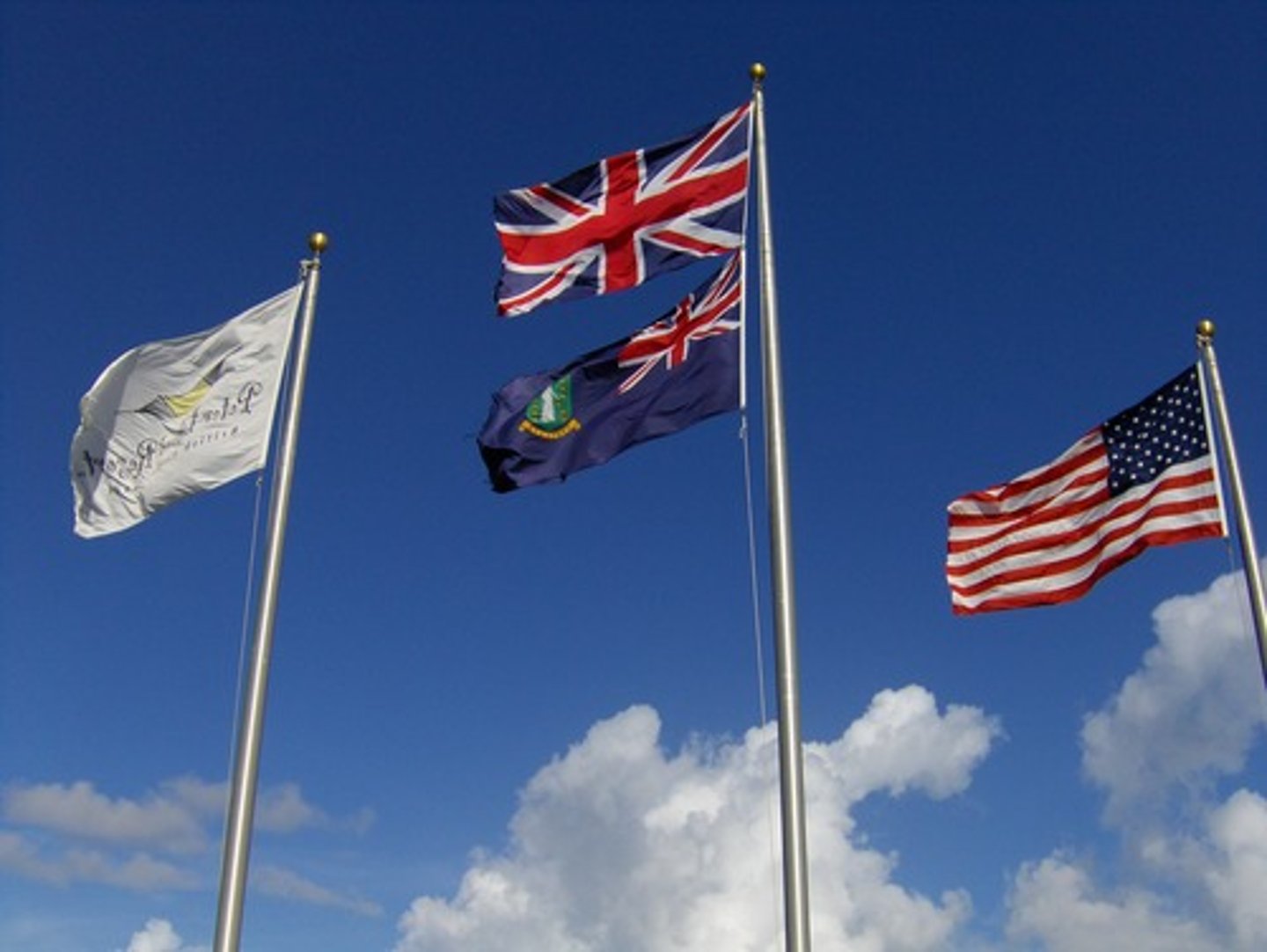
Zimmerman Telegram
This intercepted note from the German foreign minister to the Mexican government offered, territories in Texas, Arizona and New Mexico for Mexico. The note also confirmed the new policy of unrestricted submarine warfare by Germany against the Allied Powers. This helped turn Americans against Germany in WWI.
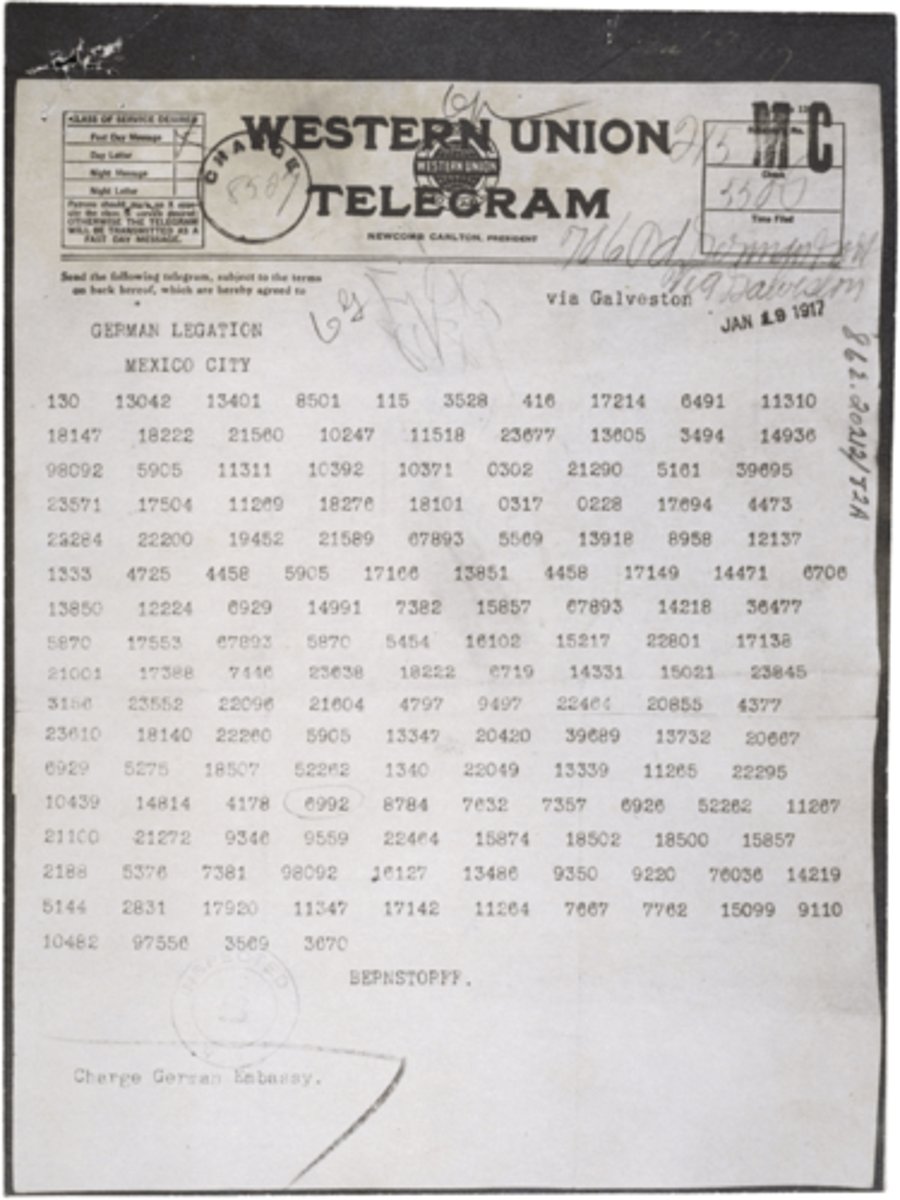
Lusitania
This British passenger ship was sunk by German U-boats in 1915, carrying civilians and ammunition to Britain from the U.S. The event turned American opinion against Germany.

Trench Warfare
This style of warfare was common in WWI, due to the invention of the machine gun and heavy artillery. It included digging long trenches, separated by barbed wire and a no mans land.
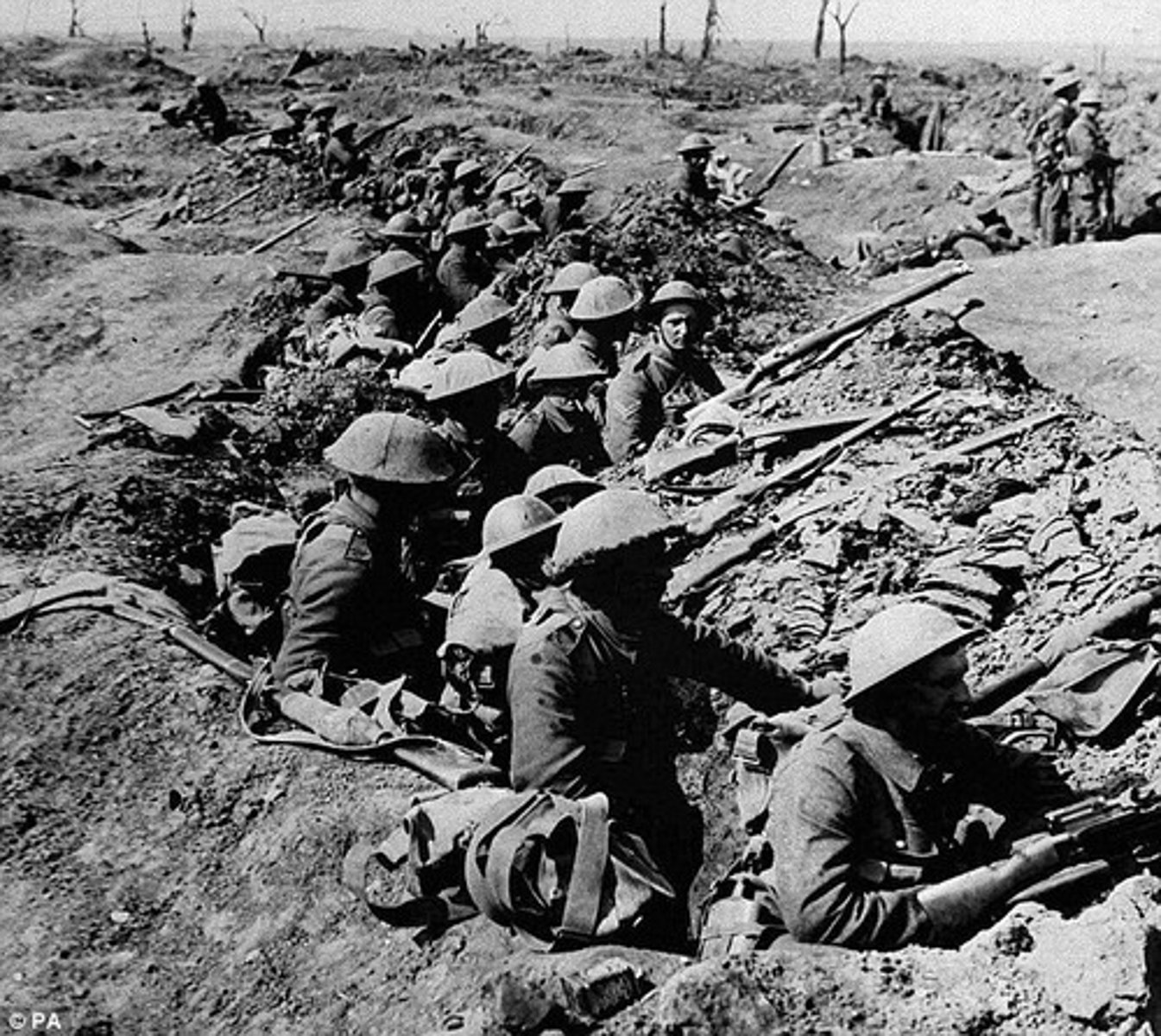
Imperialism
This cause of World War I resulted from the competition among European nations for colonies in Africa and Asia from 1880-1914. This created tension, especially between Germany and Great Britain.
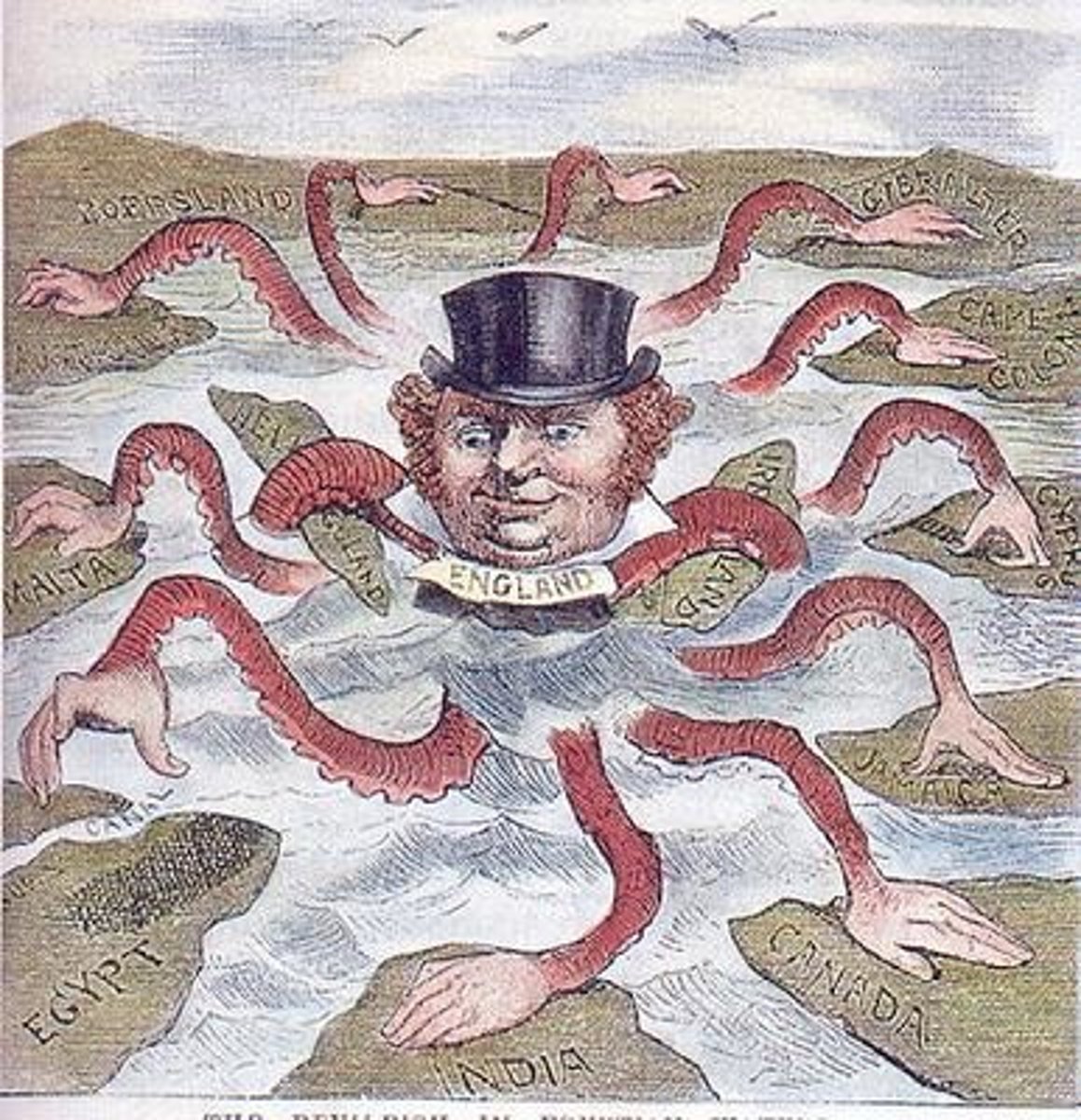
Alliance
An agreement between 2 or more countries to help each other out.
This was a major cause of WWI. Two major alliances formed the Triple Alliance (Germany, Austria, Italy) and the Triple Entente (France, England, Russia). This alliance system made world war likely, by drawing all countries into a small war.
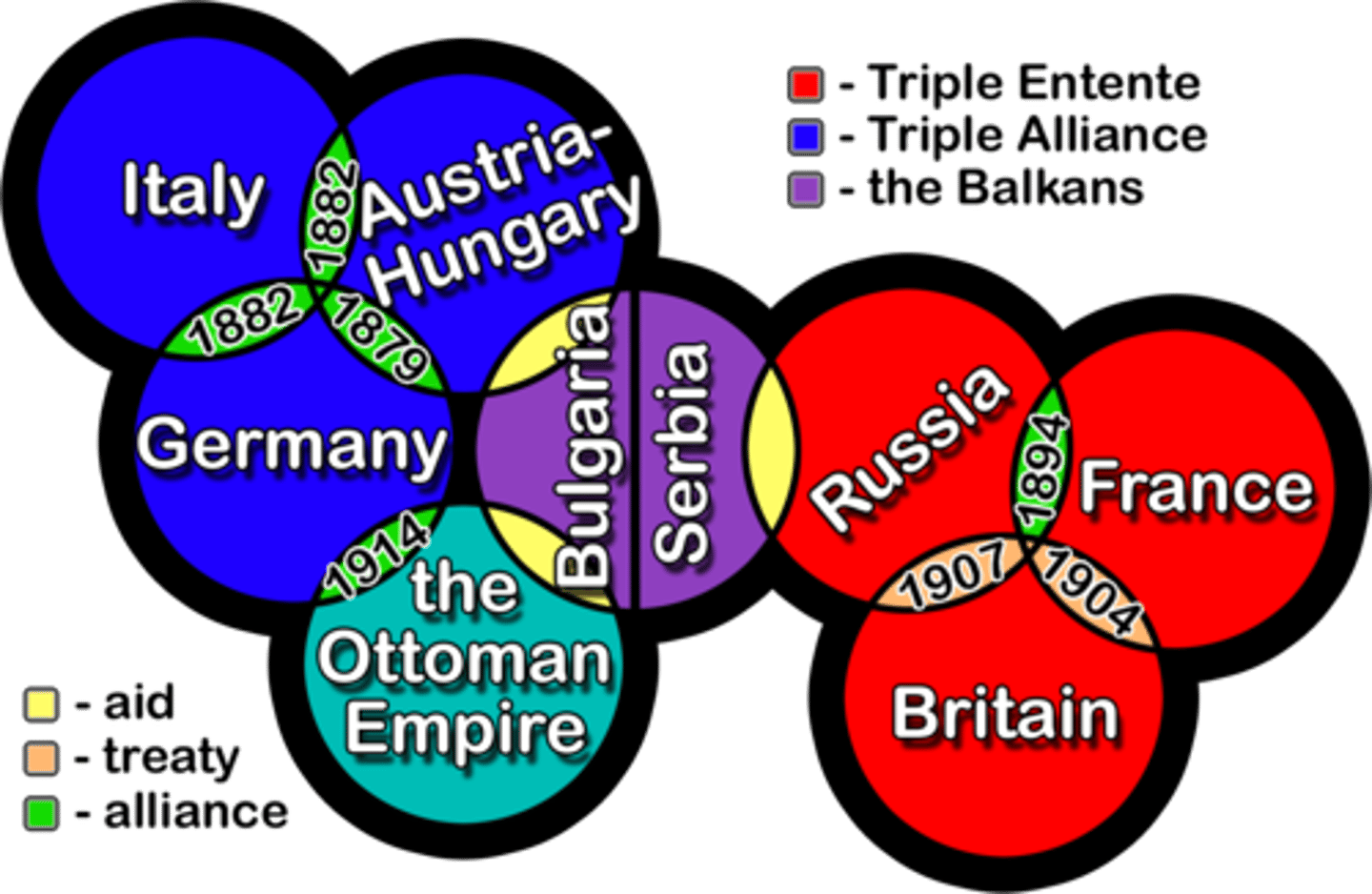
Triple Alliance
This alliance was made Germany, Austria-Hungary and Italy in the years before WWI. IN RED
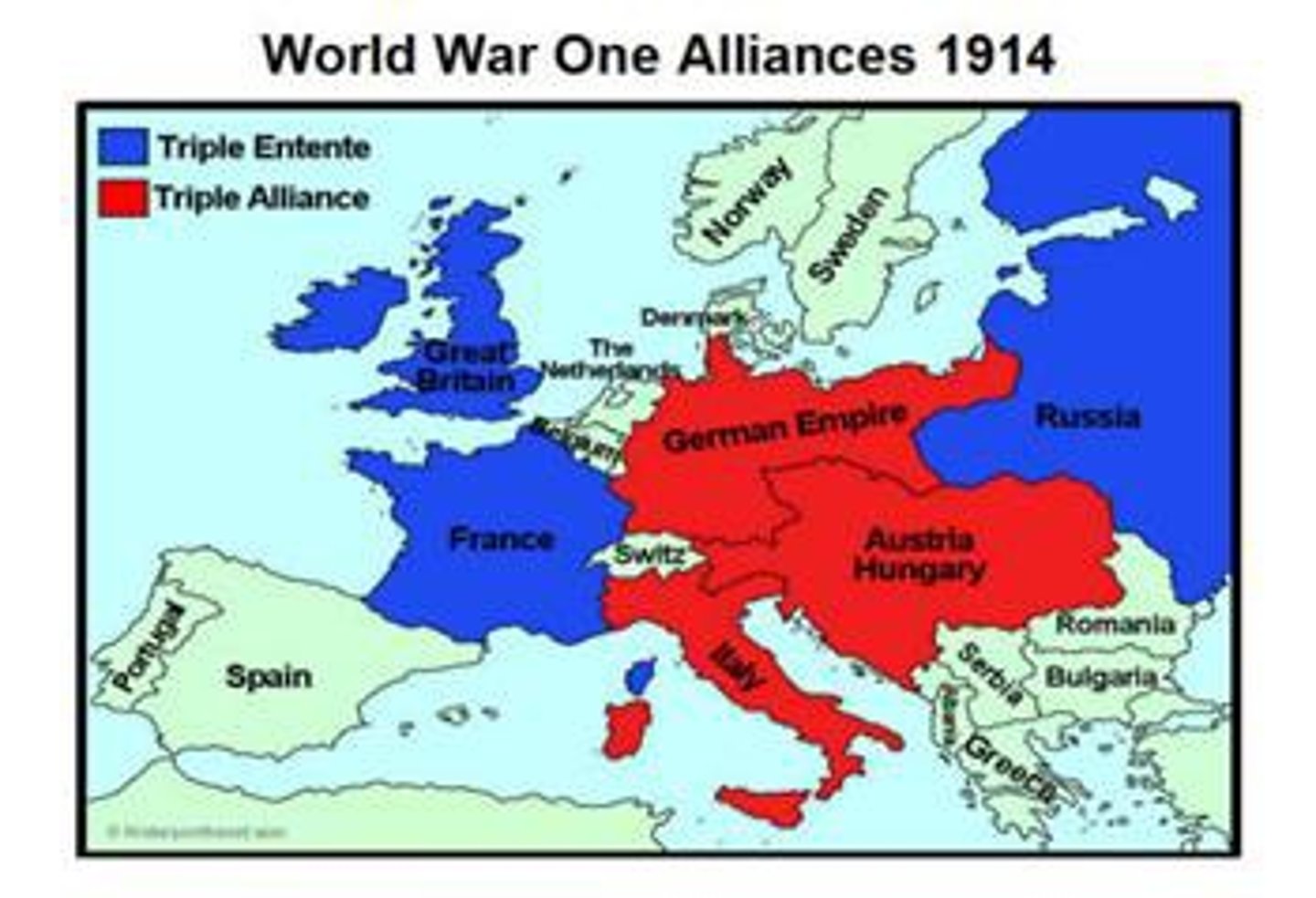
Central Powers
This was a major alliance at the 'center' of Europe during World War I, made up of Germany, Austria-Hungary, Bulgaria, and Ottoman Empire. It was formerly known as the Triple Alliance before the war. IN RED.
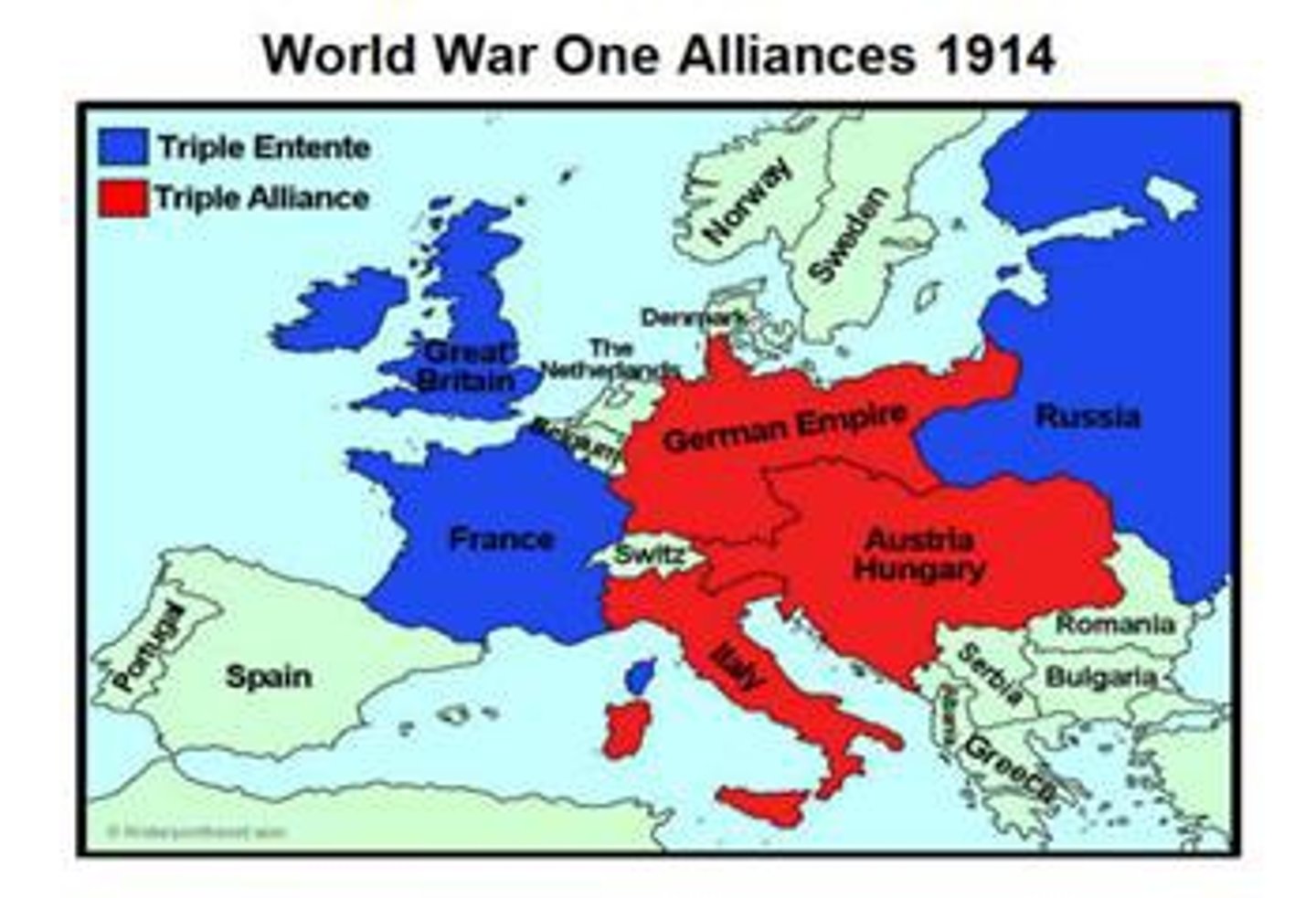
Allied Powers
This was a major alliance during World War I made up of Britain, France, Russia, and the United States. It was known as the Triple Entente (a French word) before the war.
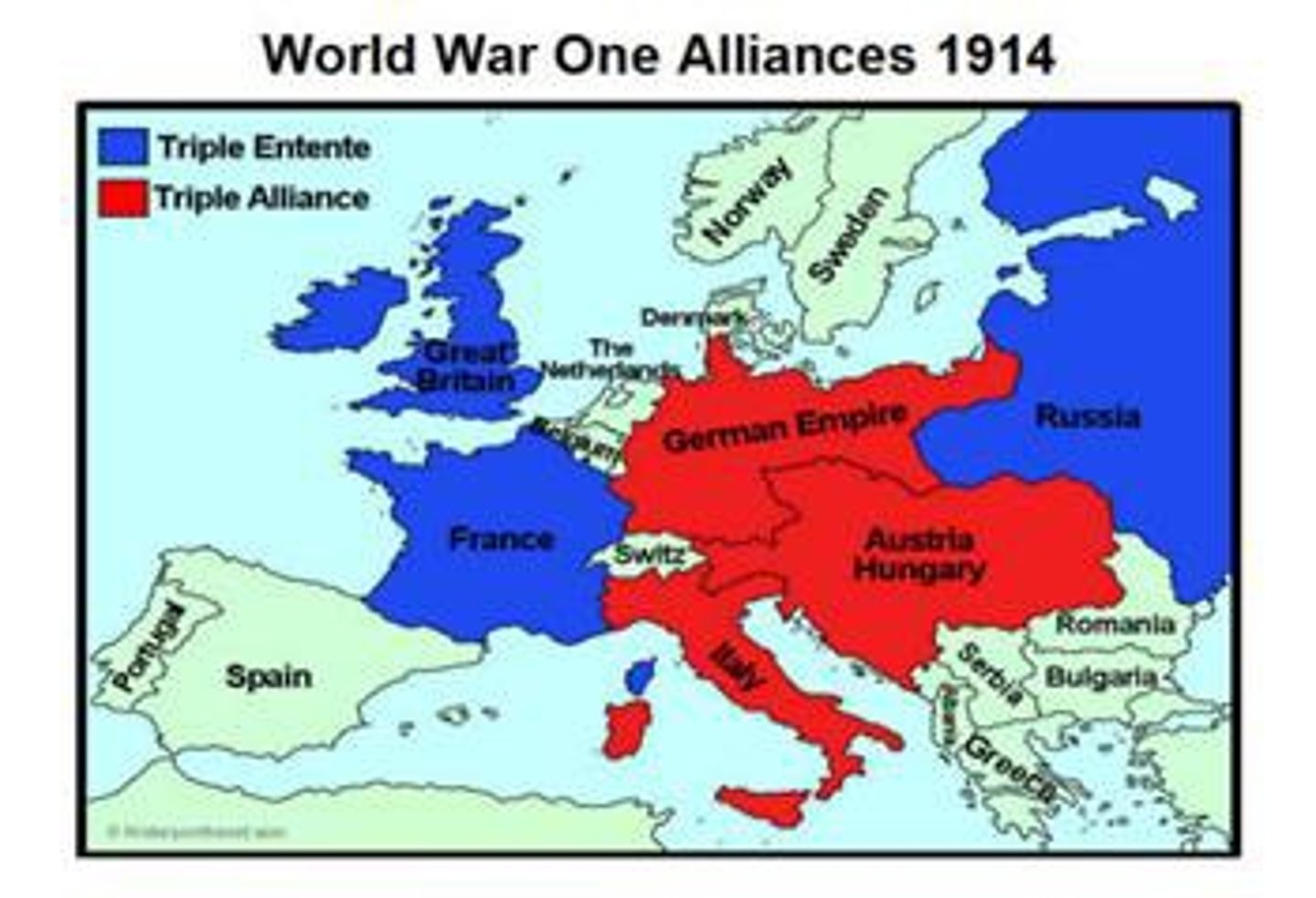
Unrestricted Submarine Warfare
A policy that the Germans announced on January 1917 which stated that their submarines would sink any ship in the British waters. Resulted in entry of the US into World War I.
Militarism
This cause of World War I was a policy of building up strong armed forces to prepare for war.
Armistice
An agreement to stop fighting
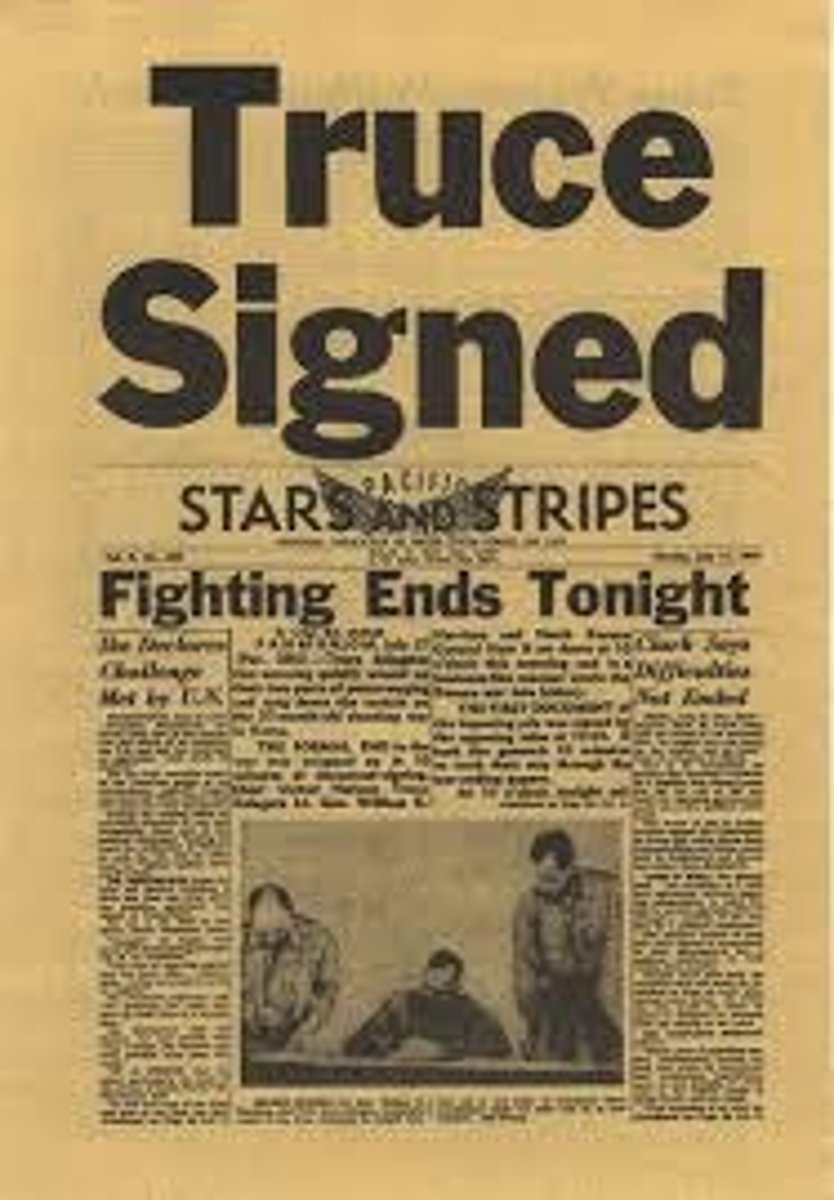
Enlist
to join the armed forces
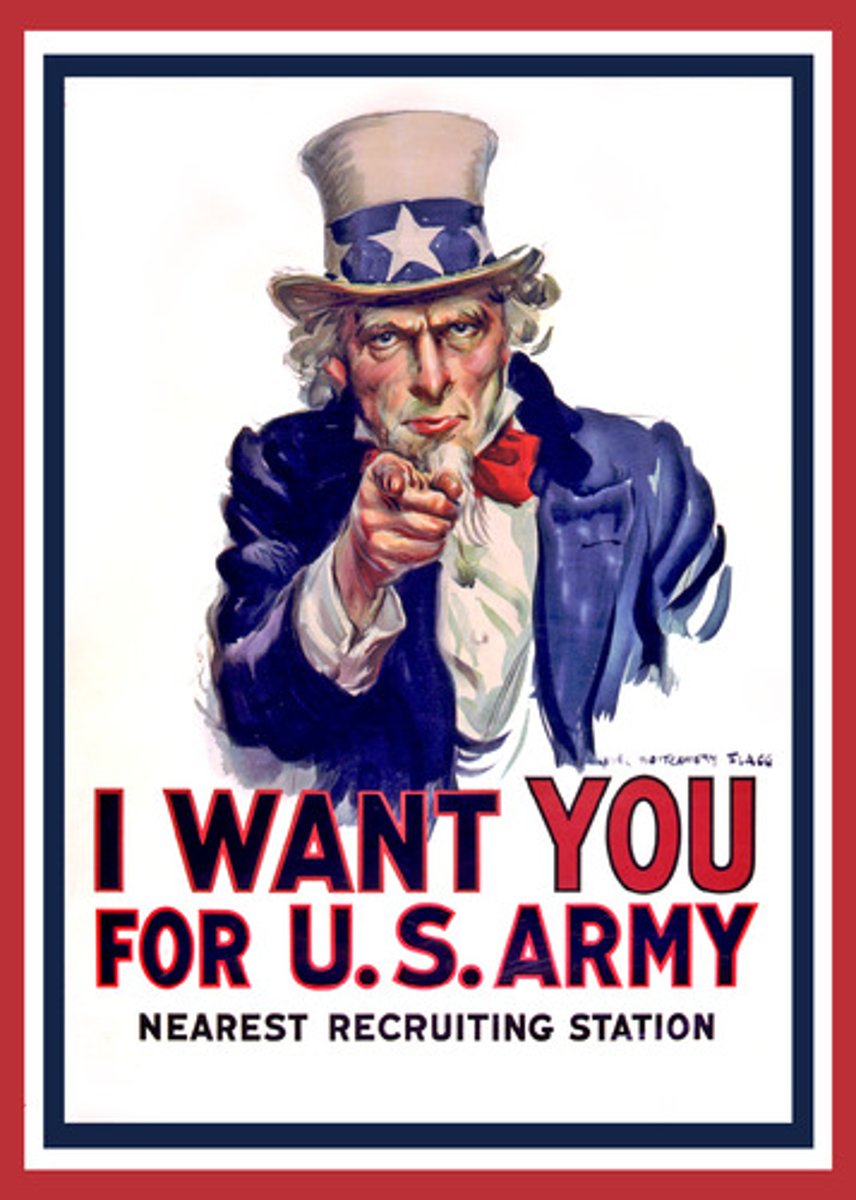
Ration
A limited portion or allowance of food or goods; limitation of use
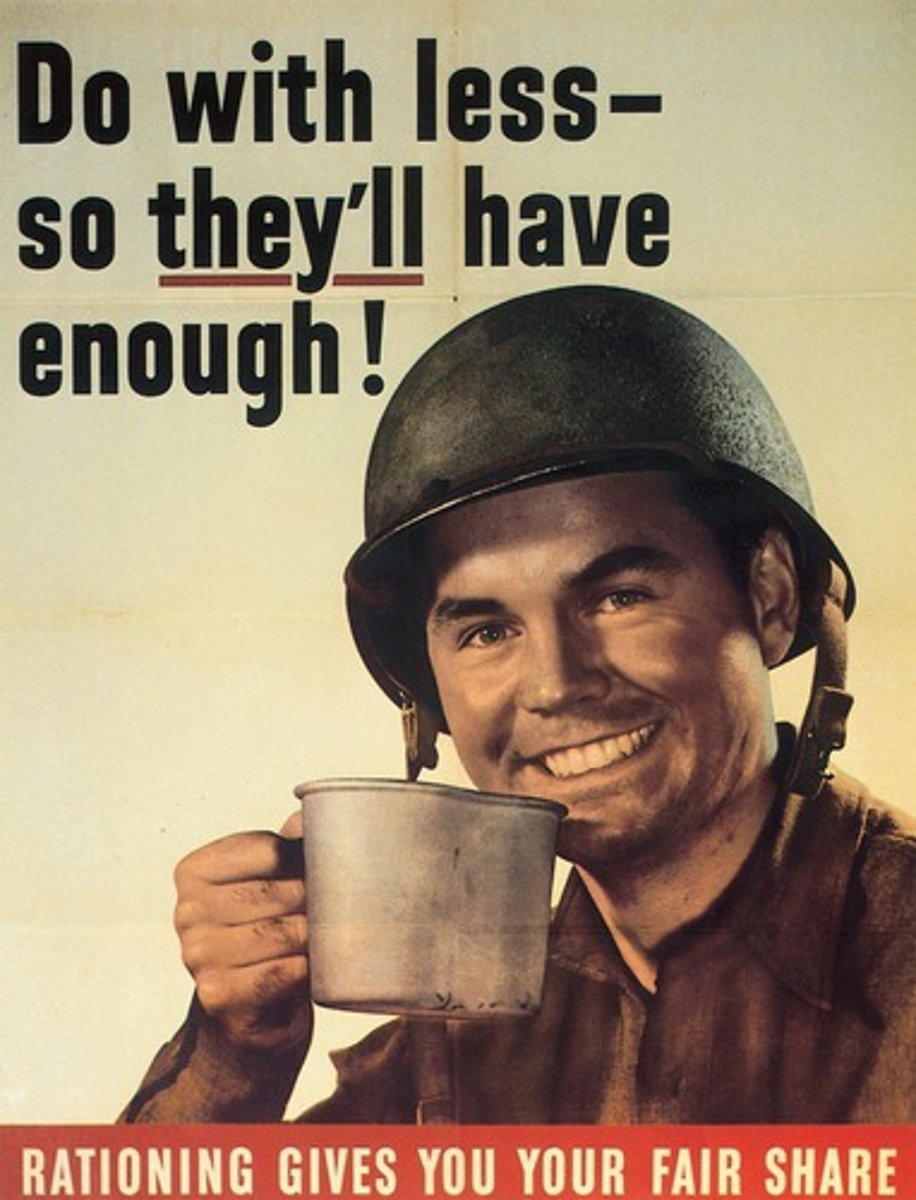
Propaganda
information that is spread for the purpose of promoting some cause
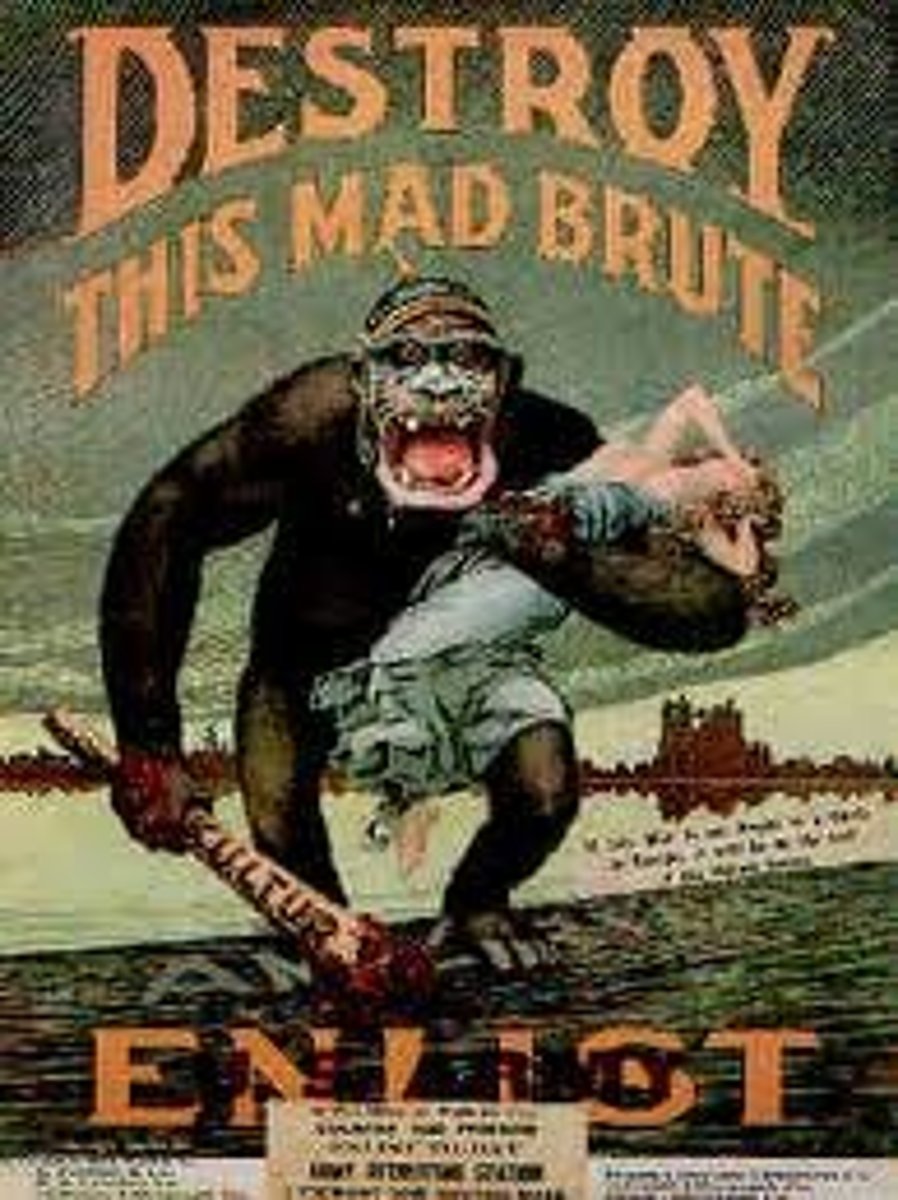
Reparations
payment for damages after a war
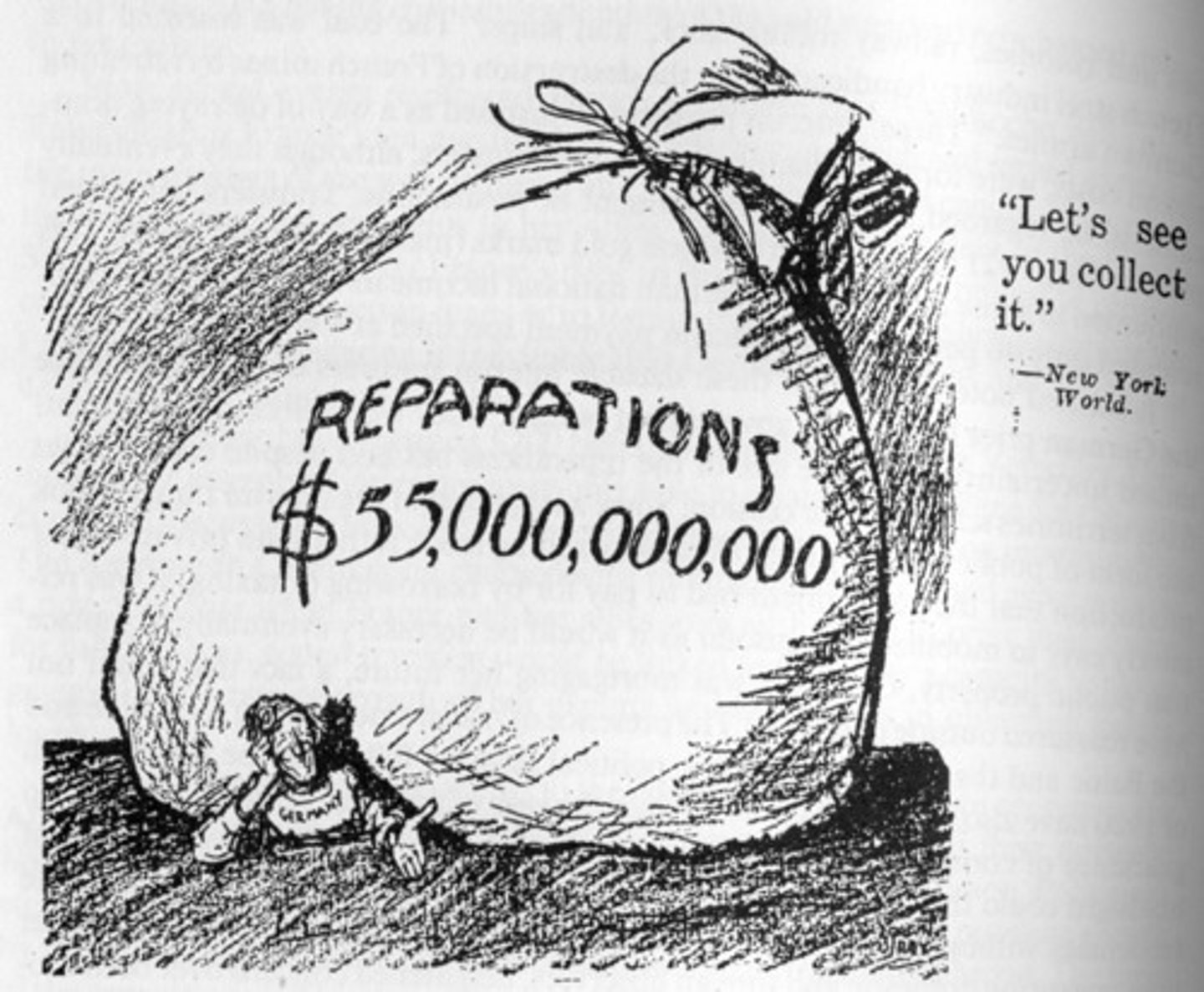
Total War
A conflict in which the participating countries devote all their resources to the war effort
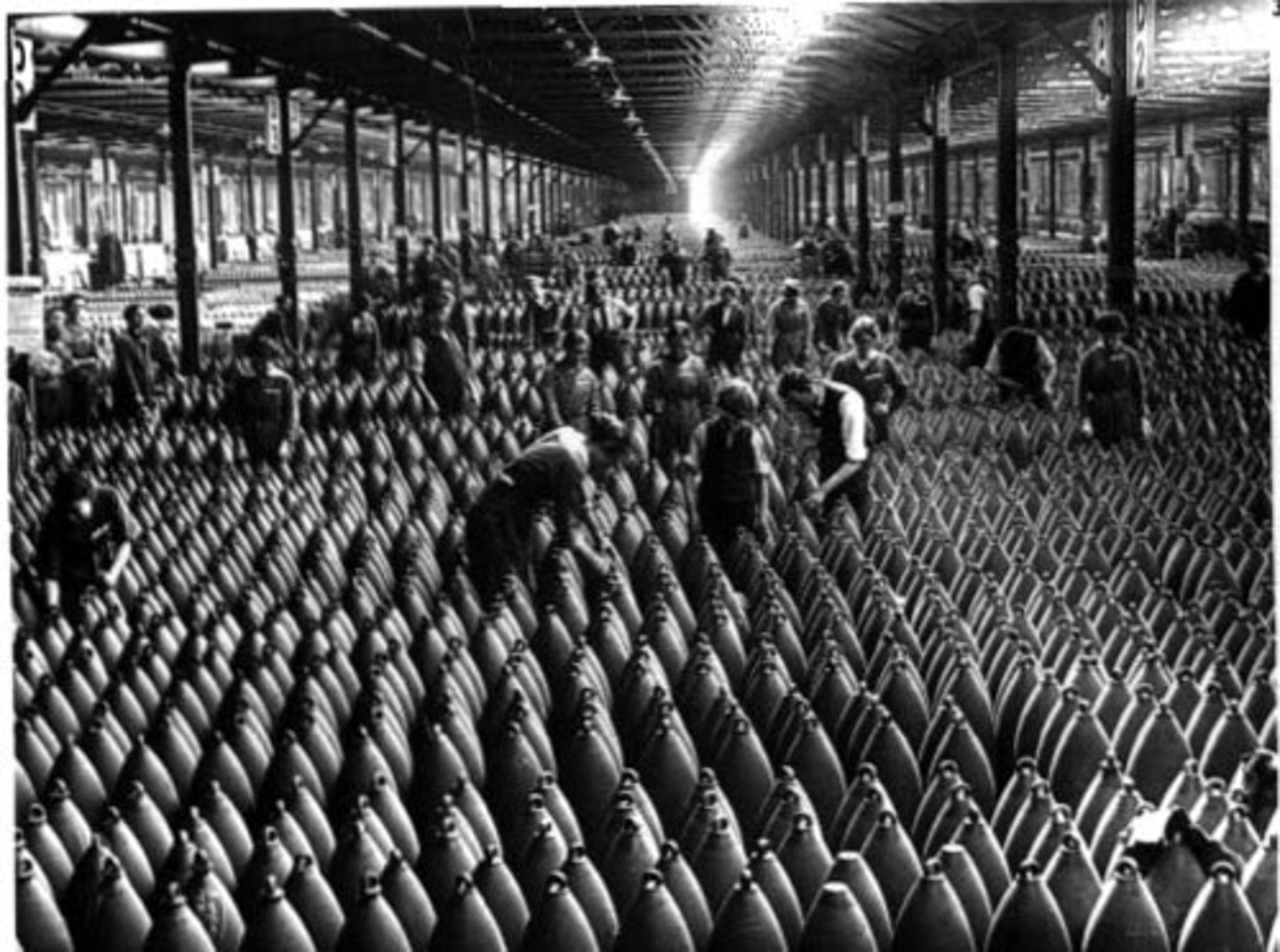
conscription
A military draft
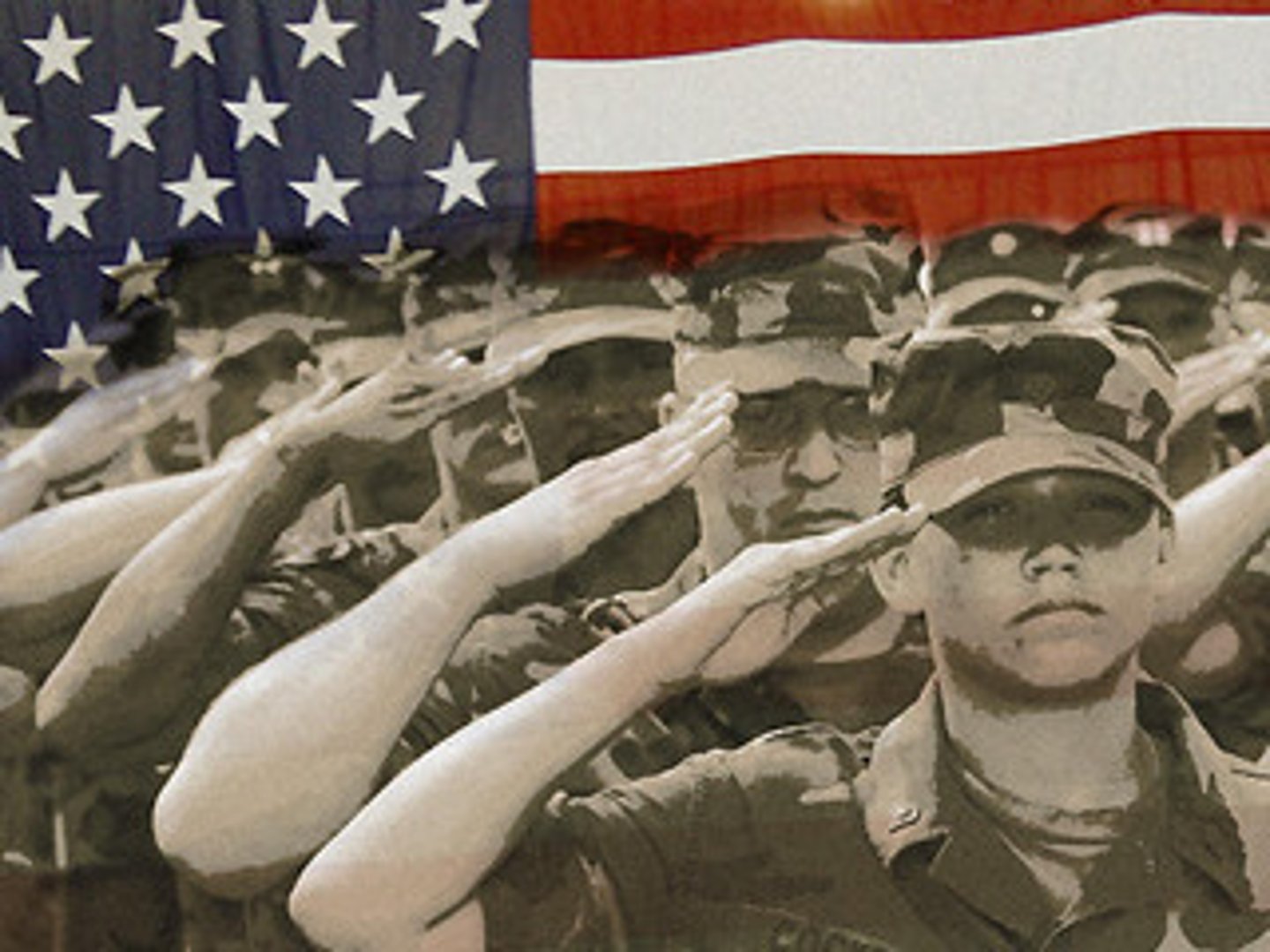
mobilization
the process of assembling troops and supplies and making them ready for war
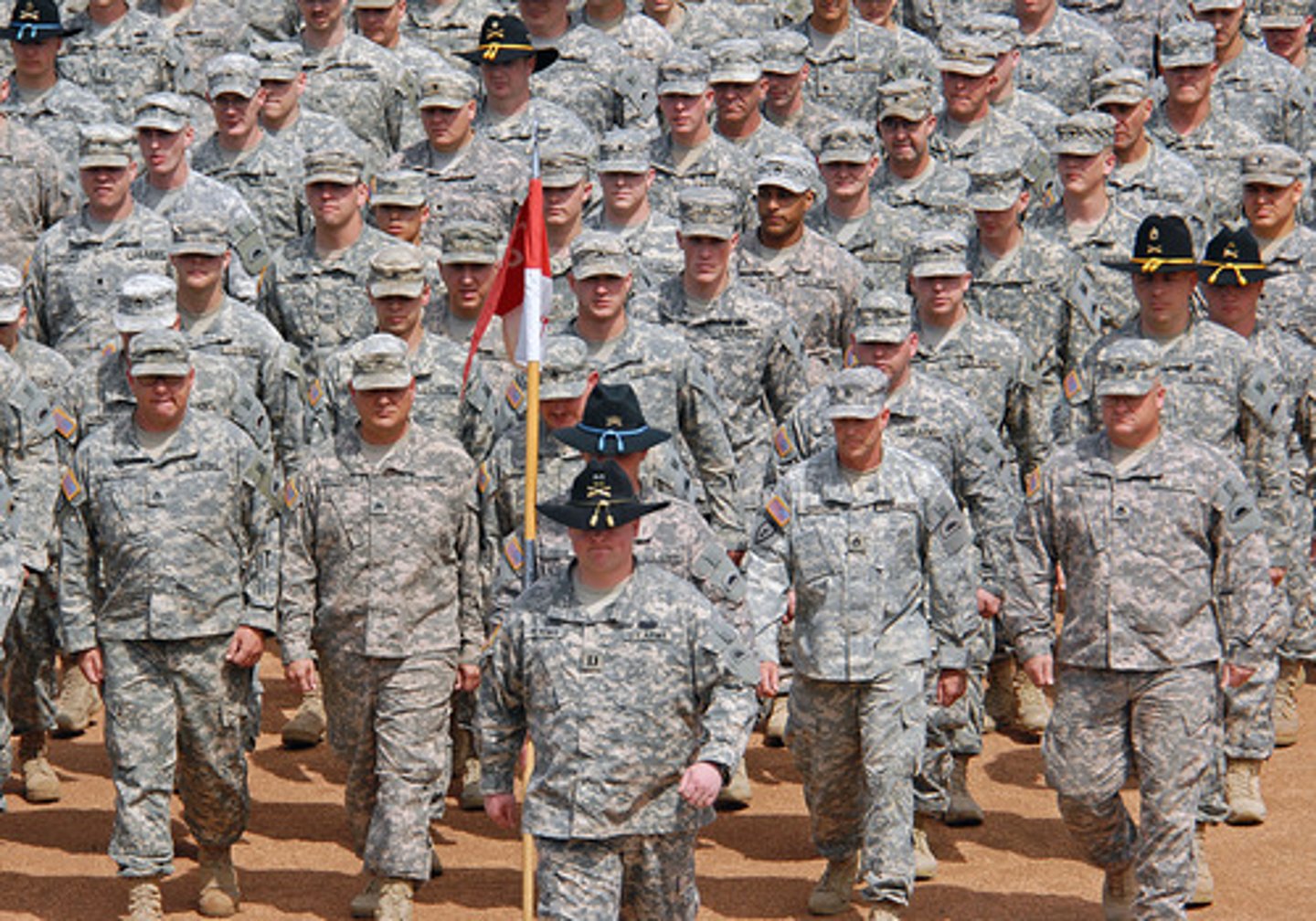
No Man's Land
Territory between rival Trenches, very dangerous
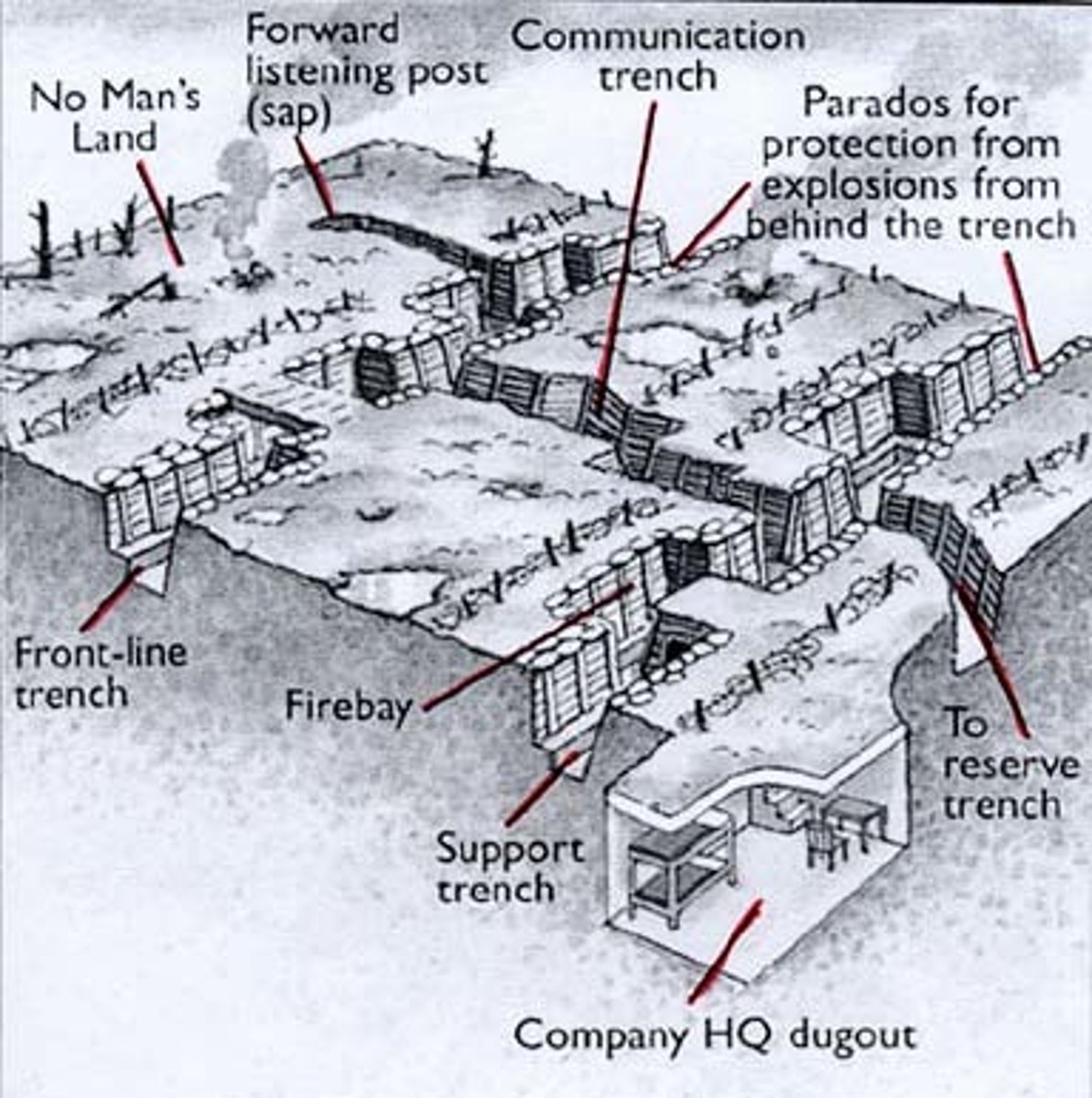
Shell Shock
Medical condition caused by prolonged exposure to the distressing experiences of trench warfare.
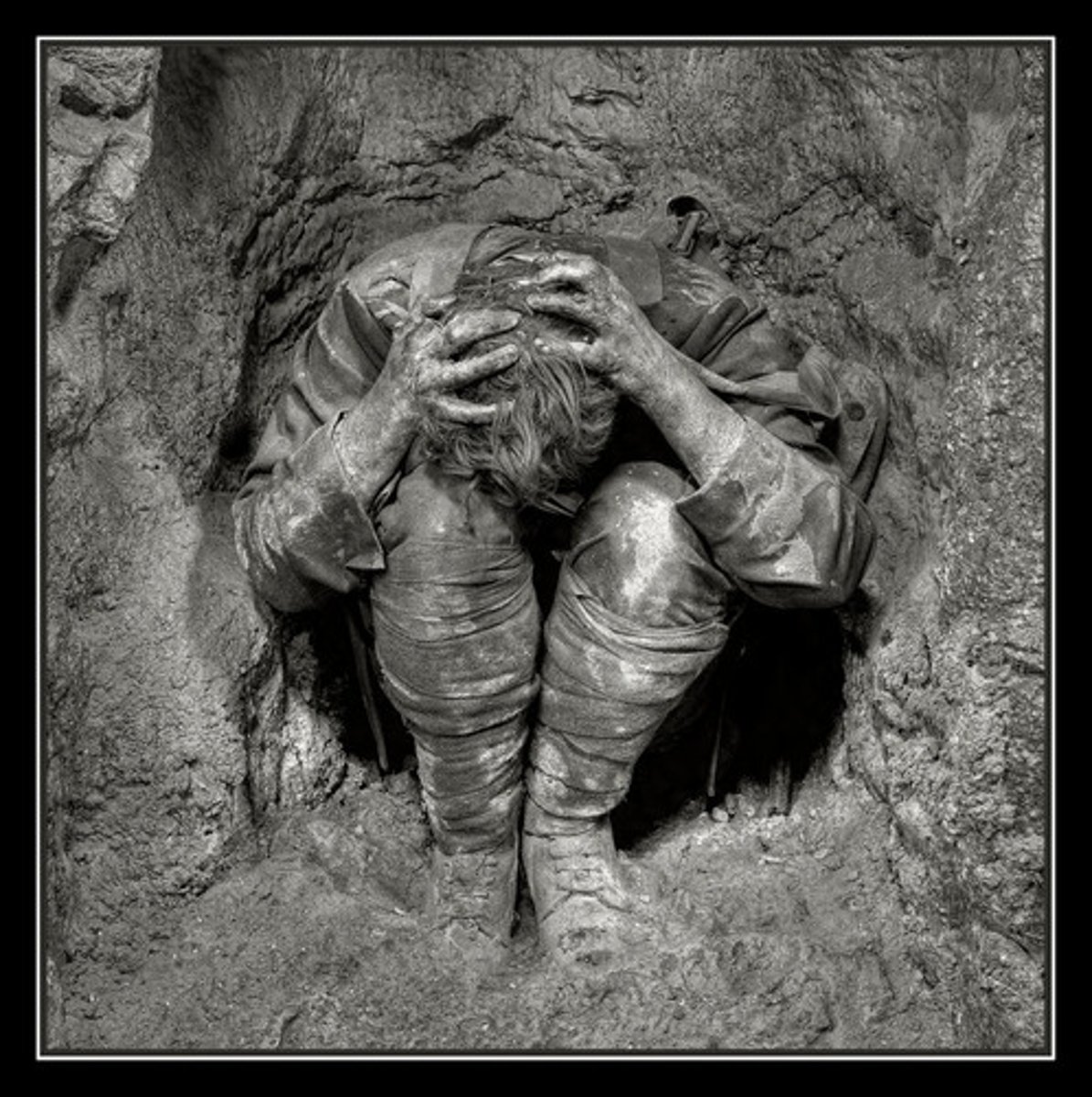
George Clemenceau
French prime minister in last years of WWI and during Versailles Conference of 1919. Pushed for heavy reparations from Germans. Wanted to make Germans suffer and help break Germany up.
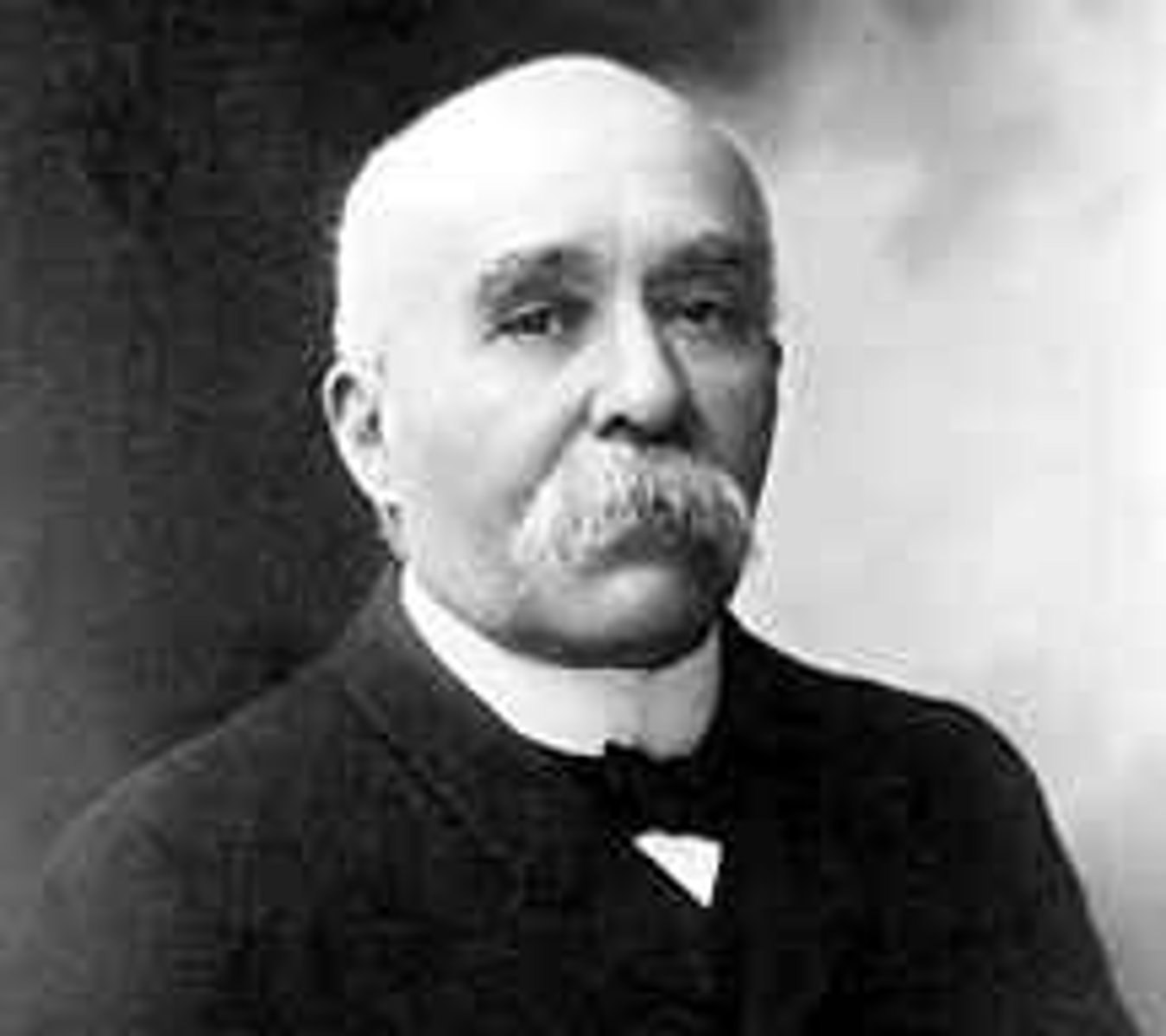
David Lloyd George
Britain's prime minister at the end of World War I whose goal was to make the Germans pay for the other countries' staggering war losses
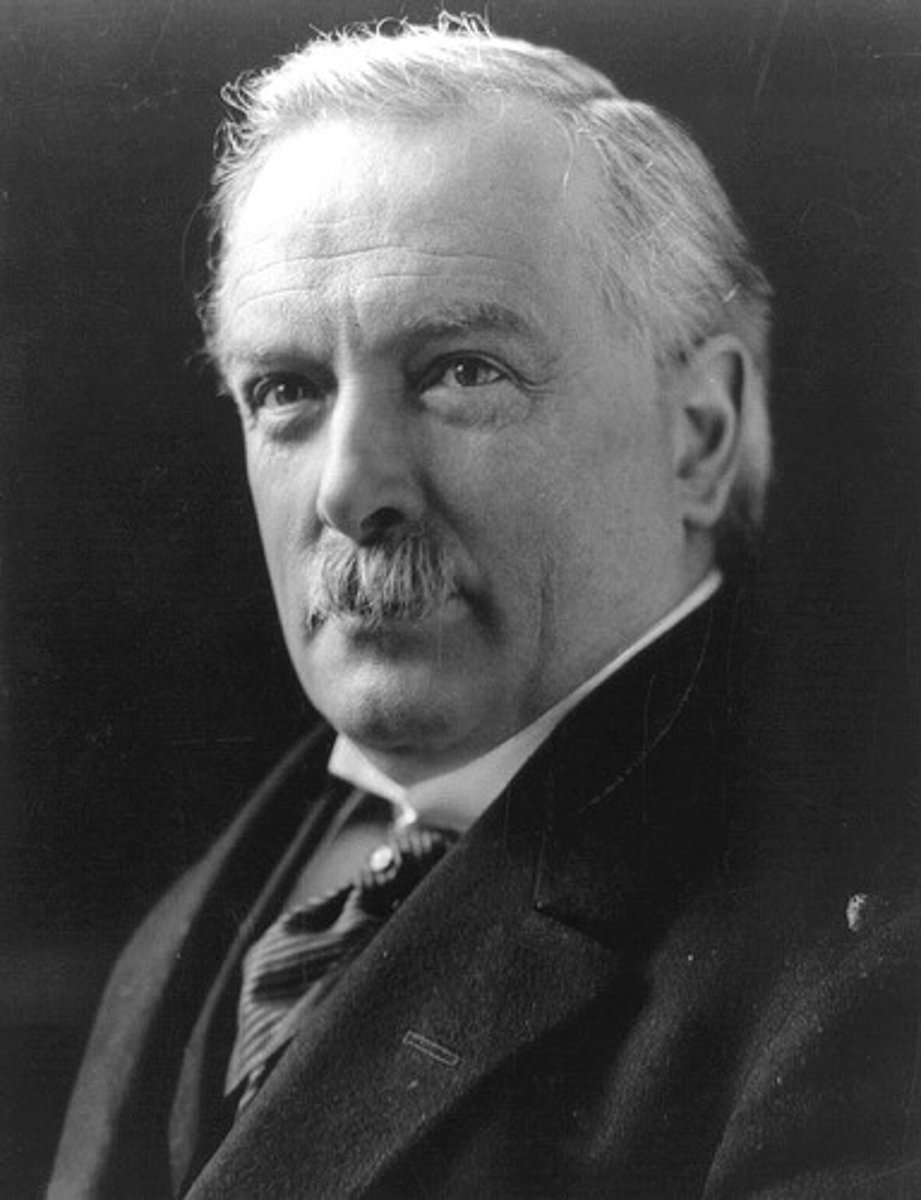
Paris Peace Conference
1919, meeting of the Allies at the end of WWI, concluded or ended with Treaty of Versailles
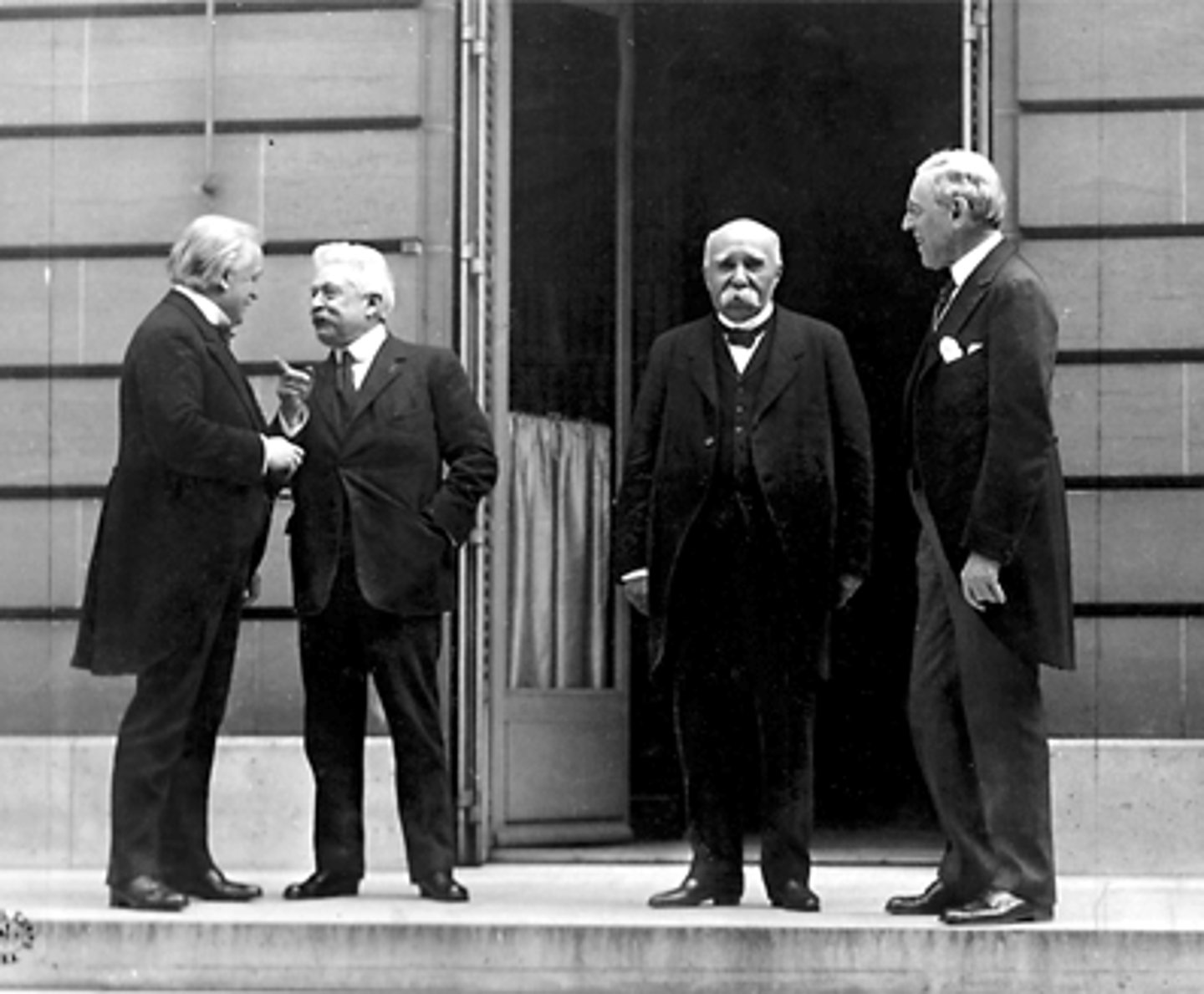
Treaty of Versailles
Treaty that ended WWI. It blamed Germany for WWI and handed down harsh punishment.
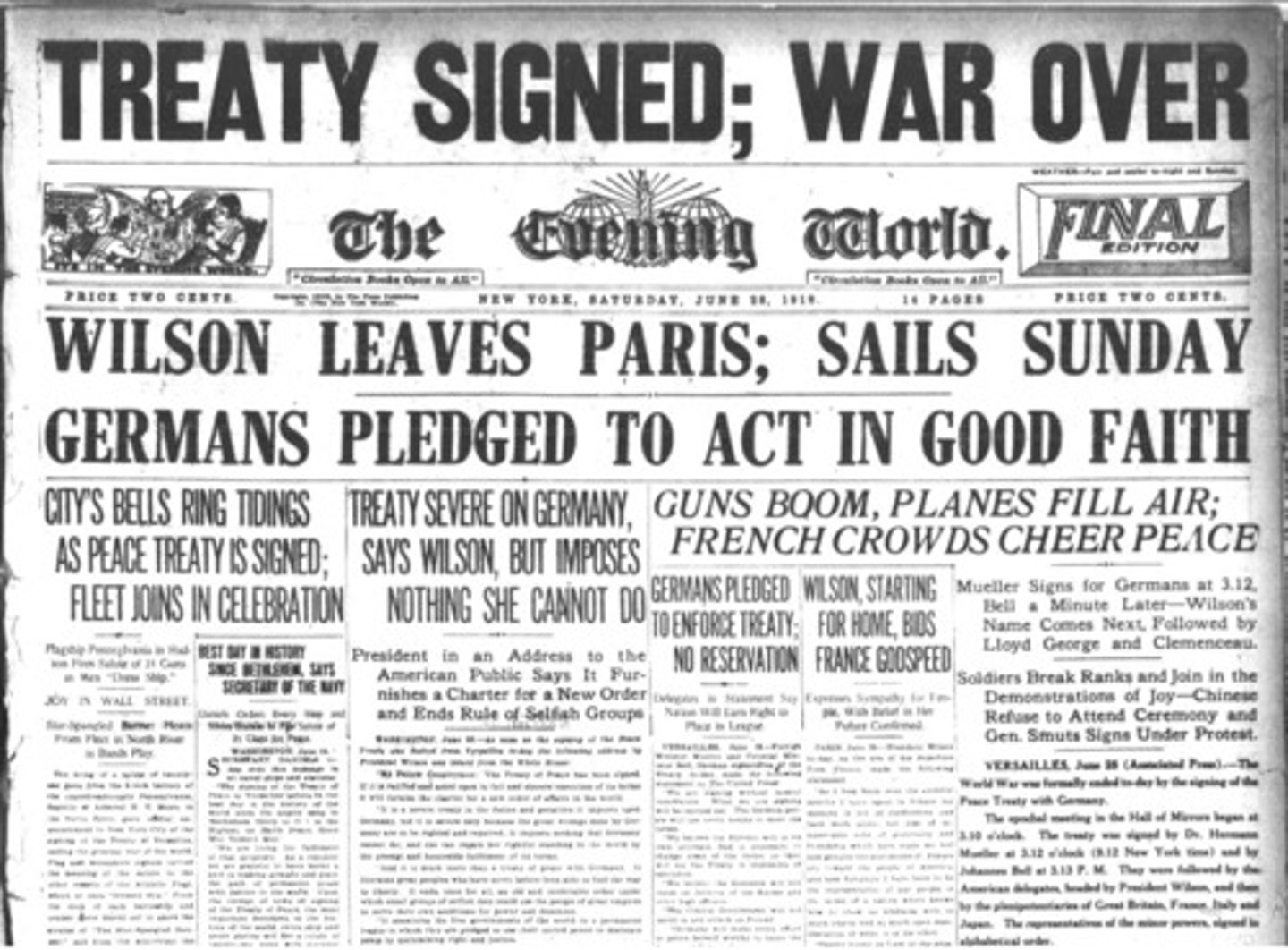
14 points
(1918) President Woodrow Wilson's plan for organizing post World War I Europe and for avoiding future wars.
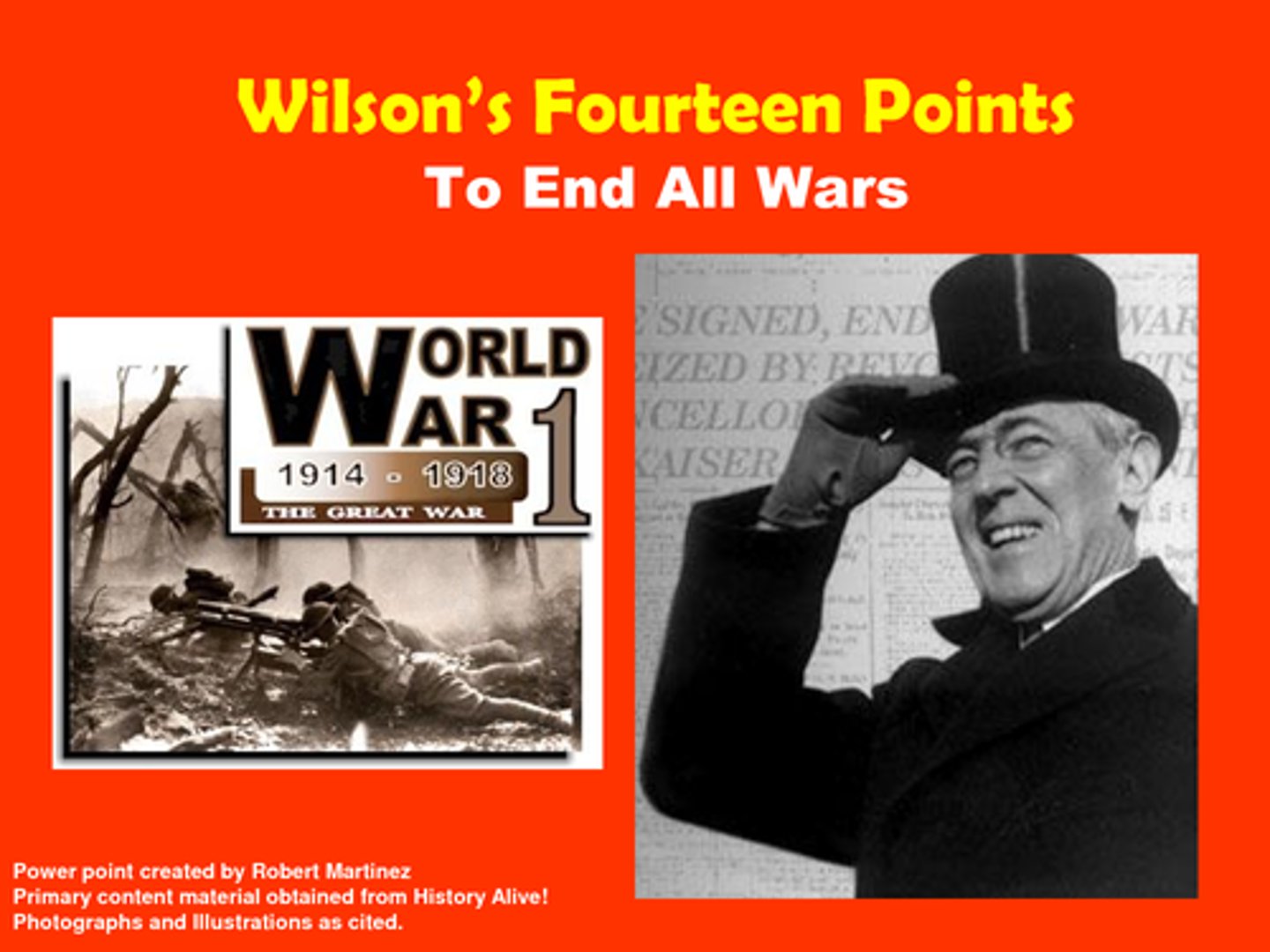
League of Nations
A world organization established in 1920 to promote international cooperation and peace. It was first proposed in 1918 by President Woodrow Wilson, although the United States never joined the League. Essentially powerless, it was officially dissolved in 1946.
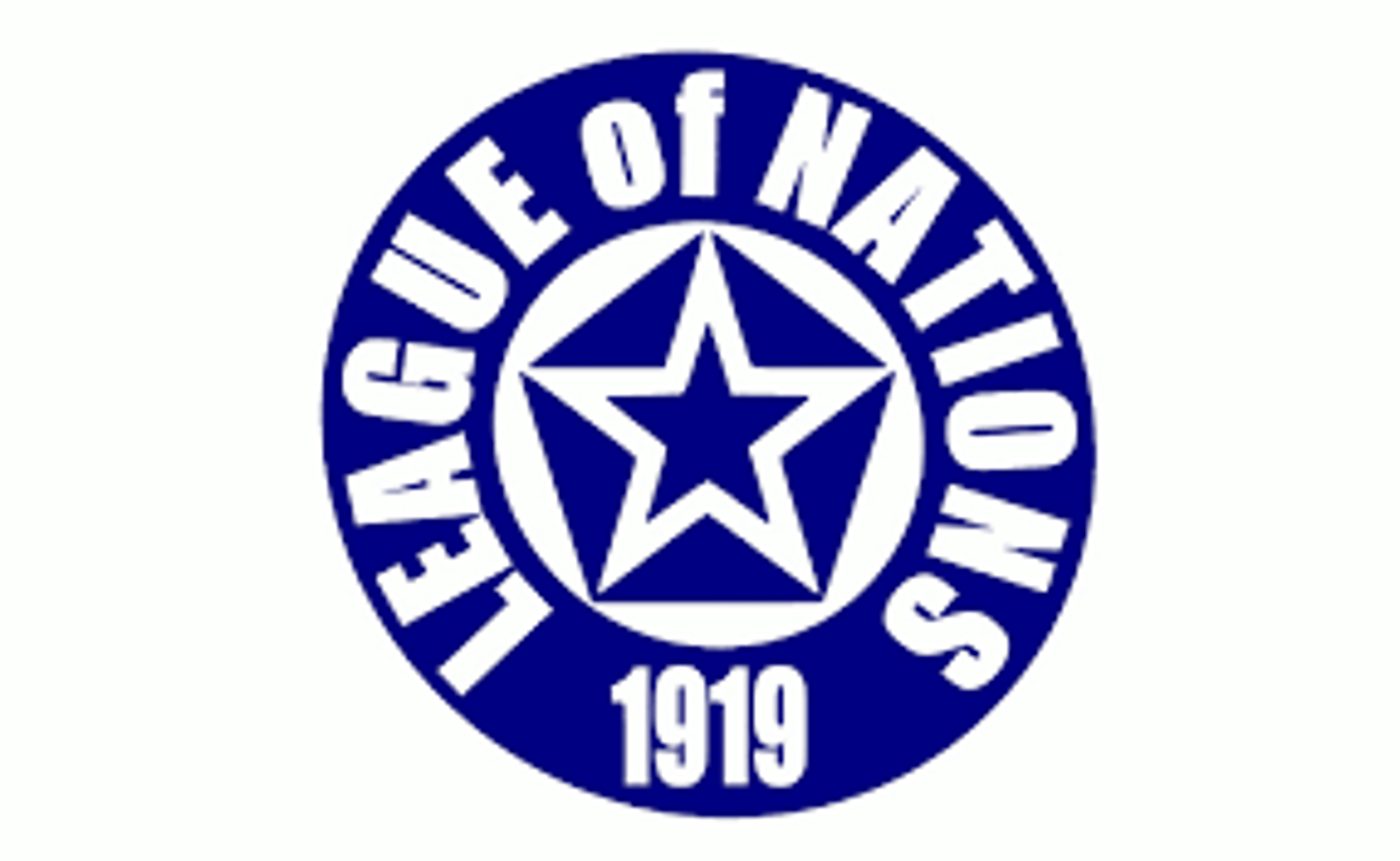
front
the line of contact of two opposing forces; Western Front & Eastern Front
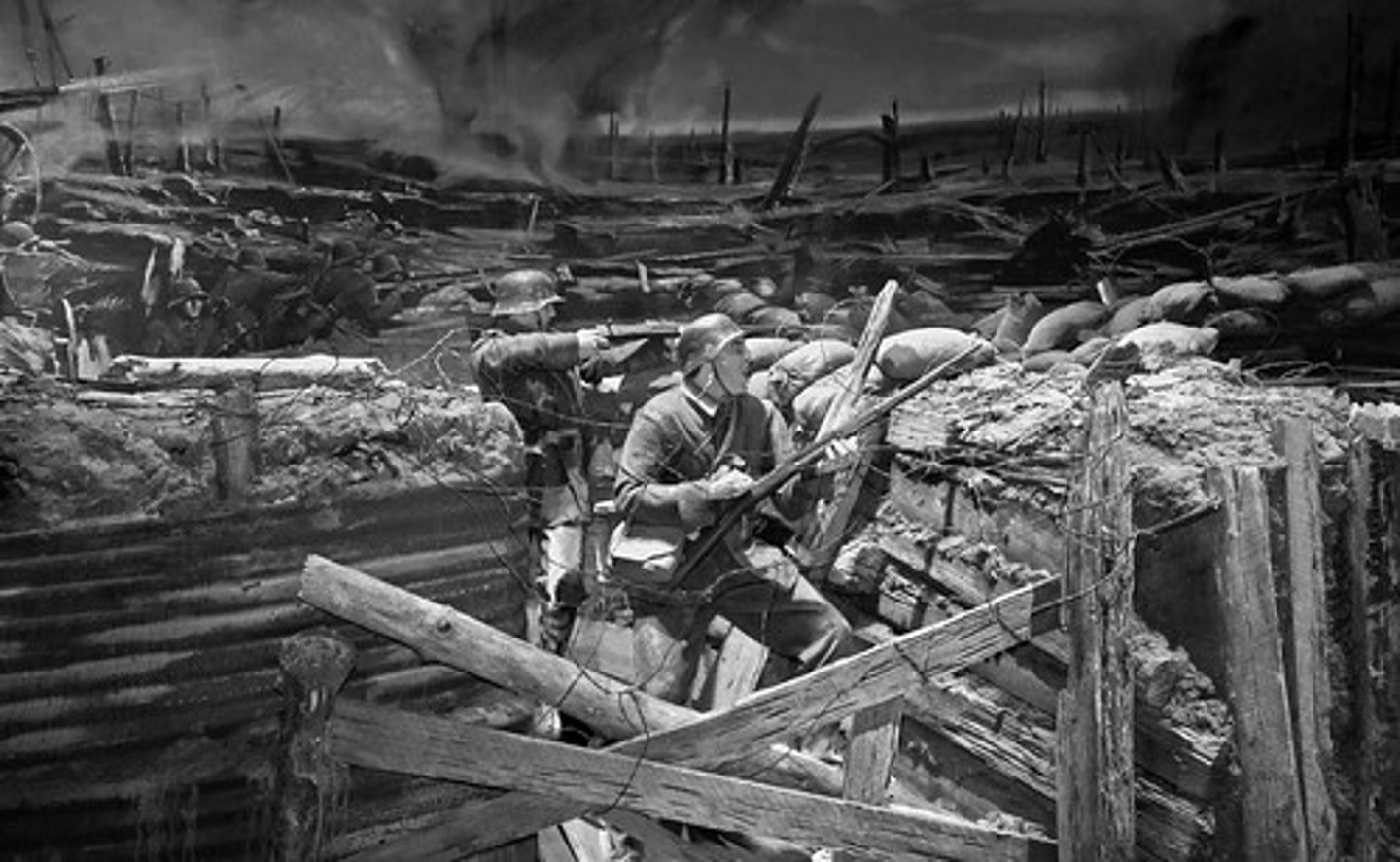
trench
a long, narrow ditch.
